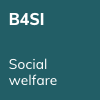EDP joined up with the NGO Social Skateboarding in the initiative "Skateboarding is good, education is great", which seeks to use skateboarding as a tool for social inclusion and transformation.
Changing social reality on four wheels
EDP supports the "Skate is good, with education is great" Project, promoted by the Non-Governmental Organization (NGO) Social Skate, in Poá, Brazil, since 2018. It serves 150 children and adolescents from seven to 17 years old.
The 4 pillars of education
Interest in skateboarding in Brazil has increased significantly thanks to the success that the sport has achieved in the 2020 Tokyo Olympics. Social Skate, aware that the sport is an important tool that promotes social inclusion and social transformation, organized the initiative "Skate is good, with education it is great", composed of activities inspired by UNESCO's four pillars of Education:
- Learning to know
- Learning to do
- Learning to live together
- Learn to be
Participation in the initiative
To participate in the project, children and young people had to ensure that they attended school and went to classes, with skateboarding functioning as a compensation for the school effort.
The participants were divided into four categories: junior, beginner, female, and amateur. The competition began with a skateboarding presentation on a street track.
This was followed by a school test, which took place in a classroom set up in the Renato Barbieri Sports Complex. The final classification of the action was defined taking into account the performance in the skateboarding competition and in the educational test. In addition to following the students' evolution in skateboarding, the NGO's teachers also monitor their school life.
Social Skate was founded in 2011, by Sandro Testinha and the pedagogue Leila Vieira, with the mission of encouraging local socializing among children and teenagers, in the Calmon Viana neighborhood, in Poá. It promotes sports practice from an interdisciplinary perspective, combining education, sports, culture, and leisure.
More than intervening in the recovery of young people, the actions focus on prevention, using skateboarding and education as main tools, offering new opportunities to children and teenagers in situations of social vulnerability.

